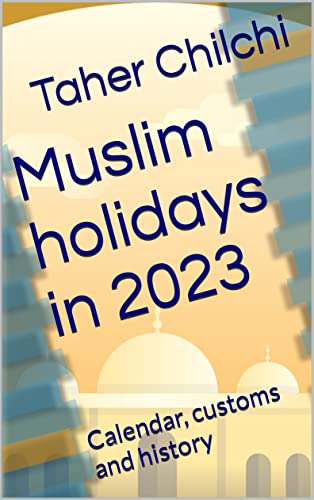Muslim Holidays in 2023: Celebrating Traditions and Faith
As we step into the year 2023, it’s a wonderful opportunity to explore the significant Muslim holidays that will be celebrated throughout the year. These occasions hold immense importance in the Islamic calendar and provide an opportunity for Muslims worldwide to come together in celebration, reflection, and worship. Let’s delve into the customs, history, and significance of these holidays to deepen our understanding and appreciation of the Muslim faith. #MuslimHolidays2023
1. Eid al-Fitr: The Festival of Breaking the Fast 🌙🍽️
Eid al-Fitr marks the joyous culmination of the holy month of Ramadan, during which Muslims engage in fasting, prayer, and self-reflection. This festival begins with the sighting of the new moon, signaling the end of Ramadan. Muslims gather in mosques or open spaces for communal prayers, expressing gratitude for the strength and discipline they displayed throughout the month. Families and friends come together to share festive meals, exchange gifts, and extend acts of charity to those in need. Eid al-Fitr is a time of celebration, forgiveness, and unity within the Muslim community.
2. Eid al-Adha: The Festival of Sacrifice 🌙🐏
Eid al-Adha, also known as the Feast of Sacrifice, commemorates the willingness of Prophet Ibrahim (Abraham) to sacrifice his son, Ismail (Ishmael), as an act of obedience to Allah (God). As the story goes, just as Ibrahim was about to sacrifice his son, Allah provided a ram to be sacrificed instead. Muslims around the world celebrate Eid al-Adha by performing the ritual of animal sacrifice, usually a lamb or goat, symbolizing their devotion and willingness to submit to the will of Allah. The meat from the sacrifice is divided into three parts: one for the family, one for friends and neighbors, and one for those less fortunate. This festival serves as a reminder of the importance of faith, sacrifice, and compassion.
3. Other Observances: 🕌🌙
Apart from Eid al-Fitr and Eid al-Adha, there are other important observances in the Muslim calendar. These include:
- Ramadan: The holy month of fasting, self-reflection, and increased devotion. Muslims abstain from food and drink from dawn until sunset, focusing on spiritual growth, self-discipline, and acts of charity.
- Mawlid al-Nabi: This observance commemorates the birth of the Prophet Muhammad, peace be upon him. It is a time to honor and celebrate his life and teachings, highlighting his role as the final prophet in Islam.
- Ashura: A day of fasting and reflection, Ashura marks significant events in Islamic history, including the liberation of the Israelites from Egypt and the martyrdom of Imam Hussein, the grandson of Prophet Muhammad.
Throughout the year, these observances provide opportunities for Muslims to deepen their spiritual connection, strengthen family and community bonds, and engage in acts of compassion and generosity.
Muslim holidays in 2023: Calendar, customs and history (English Edition) https://t.co/jEC3kG4MyF #Amazon via @Amazon
— Pierre Benoit (@Pierre2023A) June 21, 2023

